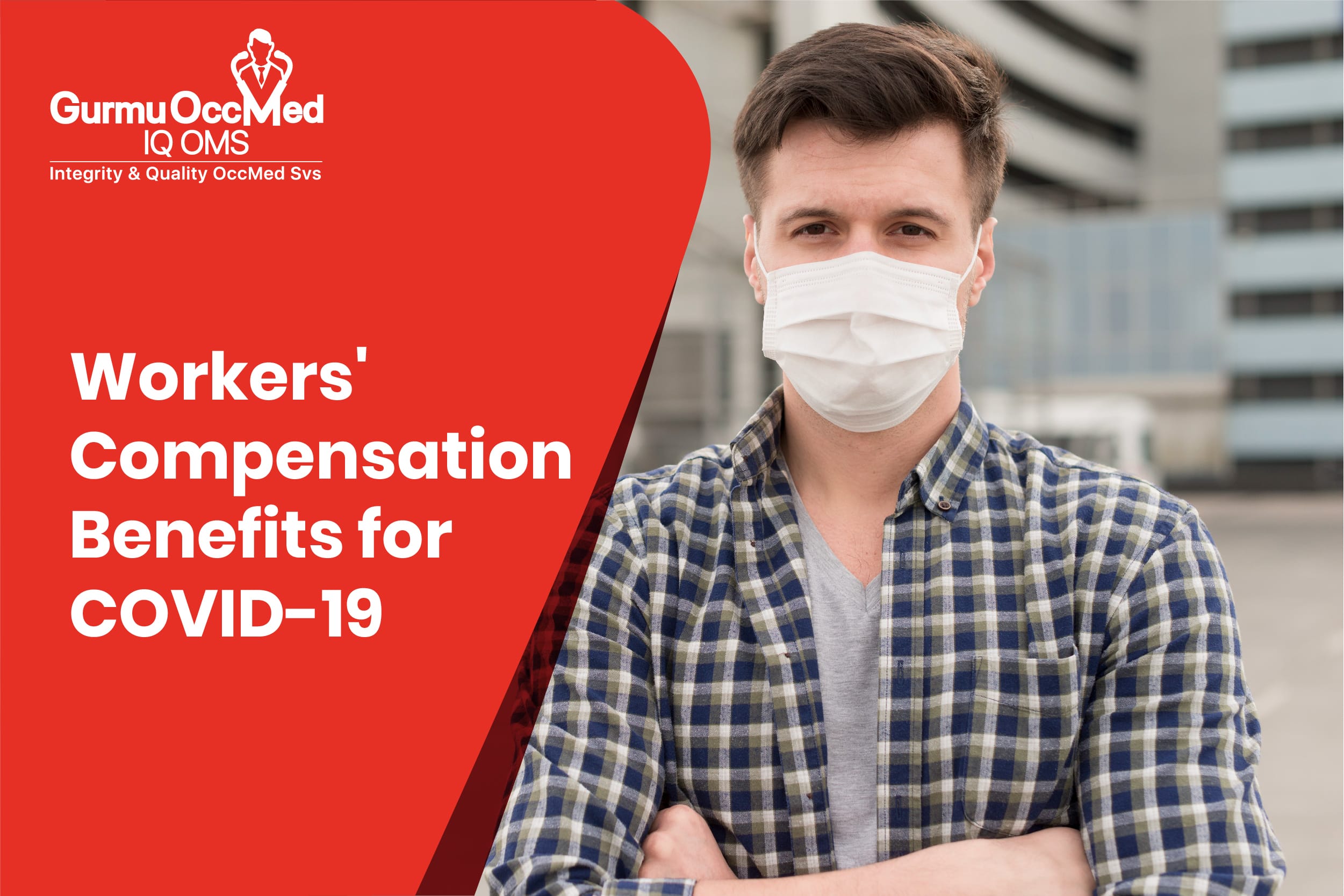- Office Hours: Mon-Fri 8AM to 5PM
- Email: dabi@gurmuoccmed.com
- Call Us: (559) 587-5587


The coronavirus has swept the entire nation and it still continues to dominate many countries in the world. The Centers for Disease Control and Prevention (CDC), the Washington State Department of Health (DOH), and other public health agencies are responding to an outbreak of a respiratory disease which they call COVID-19.
This global health crisis has changed the healthcare landscape. The outbreak has forced many hospitals, practices, and other healthcare organizations to confront many challenges when it comes to providing quality care to patients. Issues such as limited medical supply and clinical protections have been prevalent in the healthcare industry. However, it does not stop there. Ordinary individuals also have to make necessary adjustments to cope with the situation and that includes employees as well.
According to Investopedia, worker’s compensation coverage refers to an insurance policy that protects employees under state laws and provides medical care, death, disability, and rehabilitation for workers who get injured or killed while on the job. The insurer agrees to pay all compensation and benefits related to the insured employer’s state’s workers’ compensation laws. This is without any regard to liability.
The workers’ compensation benefits are generally on a no-fault basis. This means that as long as the employee is not under the influence of drugs or alcohol, they are covered. Many workers’ compensation incidents provide partial reimbursement of lost wages. They also provide survivor benefits in the event the worker dies while on the job. Because there is an imminent threat going around, employees are now wondering whether they can get the help they need in this time of crisis.
There’s a new law that addresses worker’s compensation coverage for employees who contract COVID-19. The new law provides that employees on the front lines of the COVID-19 pandemic are presumed to have contracted a workers’ compensation occupational disease if they become ill with COVID-19. There is a presumption that the employee contracted COVID-19 on or after April 8, 2020, while employed in one of these occupations:
An employee’s date of injury is the date the employee was unable to work due to the contraction of COVID-19. Another situation is where the employee was unable to work due to symptoms that were later diagnosed as COVID-19, whichever occurred first.
Employees do not need to take the test for COVID-19 to qualify. An employee can qualify by showing a positive laboratory test. If a test was not available, a diagnosis based on symptoms by a physician in your area will do. A copy of the test results or the diagnosis by a healthcare provider should be given to the employer or insurer.
If an employee has contracted COVID-19 and is employed in one of the occupations as described above, the illness is presumed to be a workers’ compensation occupational disease. They are compensable unless the employer “rebuts” or disproves the presumption.
It is important to note that the employer may only rebut the presumption by proving the employee’s employment was not a direct cause of the disease. The employer has the burden of proving by the preponderance of the evidence. They need to prove that while performing his or her job duties, the employee got the COVID-19. Or if they are, the exposure to COVID-19 could not have been a cause of the employeeʼs illness.
As soon as employees develop symptoms of the coronavirus, they should immediately notify their employers. It is possible that they might have the illness. The employee should keep a record of when they developed symptoms and when they notified their employer of those symptoms. The employee should seek medical care from one of the health care providers and request a test for COVID-19. If a test is not available, the employee should request that the health care provider document indicates a test was not available. They also need to further document their symptoms and provide a diagnosis of whether they believe the employee has COVID-19. The employee should provide a copy of the test results or the diagnosis to their employer or their employer’s insurer.
An employee who has COVID-19 but who does not fall into one of the occupations mentioned above can still claim a workers’ compensation injury or occupational disease. They may do so if they believe that their illness is due to their employment. The employee should notify their employer as soon as possible. The employee can also call the Department of Labor and Industry for assistance.
An employee is not ill, but must stay home from work because they were exposed to the COVID-19 virus, are not entitled to workers’ compensation benefits. If an employee gets COVID-19 while at work, the illness may be a workers’ compensation injury.
Most of us are anxious because of the ongoing threat that the coronavirus brings. Having some kind of security may help you cope with the situation. It may lessen the stress and anxiety you’re feeling during this global health pandemic. If you are a worker and you want to know more about your compensation benefits, you can ask to contact your employer to know more.
Gurmu OccMed Svs is a healthcare provider that uses an independent balanced approach to understand injured workers and their employers. They have the essential qualifications for all your medical consultations. This includes injury care, OSHA surveillance programs, DOT physicals, and MRO for drug testing programs. Schedule an appointment to know more.
